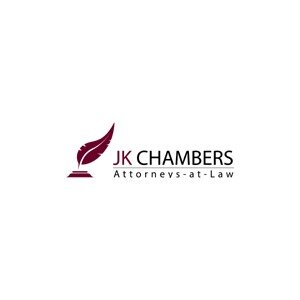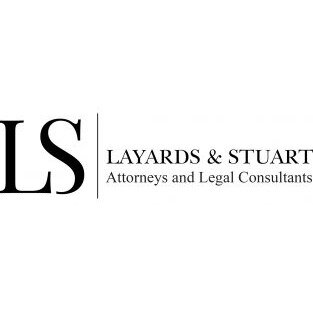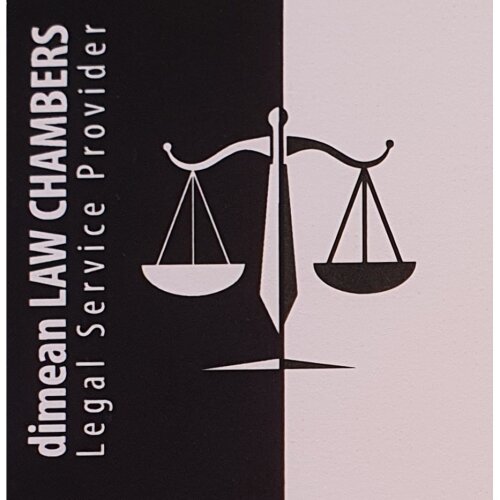Best Sanctions & Export Controls Lawyers in Colombo
Share your needs with us, get contacted by law firms.
Free. Takes 2 min.
List of the best lawyers in Colombo, Sri Lanka
About Sanctions & Export Controls Law in Colombo, Sri Lanka
Sanctions and export controls are legal measures implemented by governments to regulate and restrict trade, financial transactions, or travel with certain individuals, businesses, or countries. In Colombo, Sri Lanka, these laws are primarily designed to align with international obligations, promote national security, and prevent unlawful trade practices. Sri Lankan authorities administer and enforce these controls, ensuring that domestic entities comply with United Nations Security Council Resolutions, international treaties, and local legislation. The legal framework considers global economic and political factors while fostering responsible business practices within its jurisdiction.
Why You May Need a Lawyer
Dealing with sanctions and export controls often involves complex legal and regulatory challenges. Individuals and businesses in Colombo may need a lawyer for several reasons:
- Facing allegations of violating local or international sanctions
- Exporting or importing goods that may be subject to special restrictions
- Managing business operations with partners or clients in sanctioned countries
- Seeking clearance for dual-use goods or sensitive technologies
- Understanding compliance requirements for foreign investment
- Addressing frozen assets or blocked transactions
- Defending against investigations led by Sri Lankan regulatory authorities
- Advising on mergers, acquisitions, or restructuring involving foreign entities
A qualified lawyer can help interpret the law, assess risks, facilitate licensing, represent clients before authorities, and outline strategies to reduce legal exposure.
Local Laws Overview
Sanctions and export controls in Colombo, Sri Lanka, are governed by both local legislation and international obligations. The primary legal instruments and authorities include:
- Implementation of the United Nations Security Council Resolutions Act
- Exchange Control Act governing foreign currency dealings and cross-border transactions
- Customs Ordinance covering restrictions and inspections of imports and exports
- Central Bank of Sri Lanka's regulations on anti-money laundering and combating terrorist financing
- Financial Transactions Reporting Act addressing suspicious financial activities
Sri Lankan authorities enact and enforce additional controls as required to comply with international sanctions, particularly against countries or groups identified by the UN Security Council. All exporters, importers, financial institutions, and related businesses must conduct due diligence and report certain types of transactions. Non-compliance can lead to penalties, seizure of goods, or criminal prosecution.
Frequently Asked Questions
What are sanctions and export controls?
Sanctions and export controls are regulations that restrict certain transactions, trade, or financial relationships with designated countries, entities, or individuals to protect national security, international peace, and economic policies.
Who enforces sanctions and export controls in Sri Lanka?
Sanctions and export controls are enforced by multiple authorities including the Central Bank of Sri Lanka, Sri Lanka Customs, and relevant government ministries, operating under both local and international legal frameworks.
What goods are subject to export controls in Colombo, Sri Lanka?
Goods subject to export controls include dual-use items, military and defense products, sensitive technologies, and any goods specifically named in international or domestic sanction lists.
How do I know if my business transactions are affected by sanctions?
You must check updated sanctions lists, consult with relevant government agencies, and carry out thorough due diligence on business partners and end-users to determine if your transactions are restricted.
What are the penalties for breaching sanctions or export controls?
Penalties may include fines, confiscation of goods, loss of business licenses, freezing of bank accounts, and even imprisonment depending on the severity of the breach.
Are there any exceptions or licenses available?
Yes, certain exports or transactions may be permitted under special licenses or exemptions granted by Sri Lankan authorities if they meet specific criteria and support humanitarian, academic, or medical objectives.
How can a lawyer assist with compliance?
A lawyer can help interpret complex regulations, advise on risk assessment, guide you through licensing and reporting requirements, and represent you in dealings with authorities or in court if disputes arise.
How often do Sri Lankan sanctions rules change?
Sanctions and export control rules are regularly updated to reflect international developments. Businesses should monitor official government sources and seek professional advice to stay compliant.
Do Sri Lankan rules also apply to digital and intangible exports?
Yes, export controls can cover digital goods, software, intellectual property, and related technology transfers, depending on the nature and destination of the transaction.
What should I do if I suspect a potential violation?
It is advisable to stop the transaction immediately, document all relevant information, and consult with a lawyer experienced in sanctions and export controls to evaluate possible exposure and next steps.
Additional Resources
If you need further information or wish to stay updated, you may consider reaching out to:
- Central Bank of Sri Lanka
- Sri Lanka Customs
- Ministry of Foreign Affairs
- Export Development Board of Sri Lanka
- Department of Commerce
- Financial Intelligence Unit (FIU)
- Chamber of Commerce and industry bodies
These organizations provide updates, guidelines, and support for businesses and individuals regarding sanctions and export control compliance.
Next Steps
If you require legal assistance with sanctions and export controls in Colombo, start by gathering all documents and details relevant to your issue. Reach out to a qualified lawyer or a law firm with expertise in international trade and regulatory compliance. Prepare to discuss your business activities, partners, goods or services, and any communications with government authorities. Taking prompt action can minimize risk and ensure you remain in compliance with all applicable laws and regulations.
Lawzana helps you find the best lawyers and law firms in Colombo through a curated and pre-screened list of qualified legal professionals. Our platform offers rankings and detailed profiles of attorneys and law firms, allowing you to compare based on practice areas, including Sanctions & Export Controls, experience, and client feedback.
Each profile includes a description of the firm's areas of practice, client reviews, team members and partners, year of establishment, spoken languages, office locations, contact information, social media presence, and any published articles or resources. Most firms on our platform speak English and are experienced in both local and international legal matters.
Get a quote from top-rated law firms in Colombo, Sri Lanka — quickly, securely, and without unnecessary hassle.
Disclaimer:
The information provided on this page is for general informational purposes only and does not constitute legal advice. While we strive to ensure the accuracy and relevance of the content, legal information may change over time, and interpretations of the law can vary. You should always consult with a qualified legal professional for advice specific to your situation.
We disclaim all liability for actions taken or not taken based on the content of this page. If you believe any information is incorrect or outdated, please contact us, and we will review and update it where appropriate.

















